|
It's been about a month since I've had my beehive, so I think it's time for an update. Putting the hive together and adding the workers, drones, and queen went off without any problems. Now comes the scariest part: actually opening my beehive. I've been advised to check on my beehive every two weeks, so by now I've checked on them three times. I was really nervous the first time I opened my hive. I've still never been stung, so I don't know if I'm deathly allergic or not. Apparently the odds of actually being deathly allergic are extremely low (I've heard estimates that about 1% of the population). But I would like not to find out the hard way that I am in that select 1%. So, I was incredibly nervous the first time because: 1) I had no idea what I was doing, even though I had watched hives being opened by various people at the apiary, and 2) I didn't want to get stung and die Since I'm still writing this blog, clearly option 2 didn't happen. The first time I opened the hive a month ago, I noticed that the bees hadn't built up the honeycomb to the plastic frames. My hive was started with 4 wooden frames from another beekeeper who was generous to spare me some of his workers. Those established frames have always been doing well, but it has taken about a month for the bees to start building on the new frames. At first I was told that it was because I didn't wax the plastic frames, so I spent an evening melting old wax and painting it on my 20 plastic frames. But to be honest, the fact that bees were on the old frames but not the new ones was about ALL I noticed on my first visit. As quietly and calmly as I could muster, I opened up the top of the hive, peeked in, lifted up one of the new plastic frames, and noticed there was a bee buzzing somewhat angrily in front of my face. I studied wildlife biology, but I think anyone could figure out that that bee was saying "GET OUTTA HERE, LADY!" So I put everything back, closed the hive, and got outta there. I also forgot to mention that I had neglected to buy plastic gloves and a water spray bottle, so the risk of being stung was higher than normal. The water bottle is good to mist the top of the frames so the bees think it's raining and retreat deeper into the hive, making it easier to pick up the frames. I realized after my first visit that I couldn't live in perpetual fear of dying from two bee stings. At my next doctor's visit, I asked for a perscription for an epipen just in case. The doctor seemed very intruiged and confused about why I would choose to raise bees, and I think spent more time talking to me about bees than the condition that I actually came to the doctor for. He also warned me that epipens are expensive. Multiple people have told me this, as if finding out that paying $50 for a potentially life-saving device would be a deal-breaker. If nothing else, it was worth the peace of mind. On my second visit, I was slightly less nervous because I had brought gloves and an epipen, but I was still deterred by a solitary angry bee in my face. I did manage to pull out one of the wooden frames to make sure the bees were making honey and brood (baby bees). These are two of the main things you should look for when you're checking your bees, since this means that the workeres are doing okay, and queen is alive and making young. There are ways to check for parasites and diseases in the hive, but I'm not that experienced yet. I was nowhere near being comfortable poking around the hive, and I wanted to check on the bare minimum and get the hell out of there. 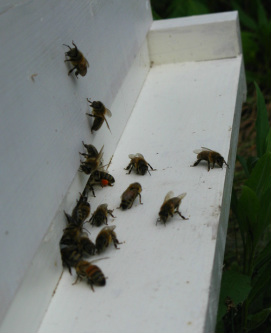 My two week mark was coming up again yesterday, so I was dreading/looking forward to check on the hive again. I took out Beekeeping for Dummies from the library, which is a really great book. I keep it (until I have to return it) in a tote bag with my camera, epipen, gloves, and lab coat. I felt more prepared this time. Since I had a little extra time, I spent about 15 minutes sitting to the side of my hive entrance, watching them. I know it's important to be calm when you check on the hive, so I was hoping that a little observation time would help me zen out. It's pretty fascinating to watch the bees dance and fly in and out of the entrance. You can see a bee heading into the hive with some pollen on its legs. When I felt sufficiently relaxed, I opened up the hive. Last time, the bees hadn't built comb on the plastic frames, but instead on the inner cover and other places that they weren't "supposed" to. I was happy to find out that there was only a little bit of comb on the inner cover, and they were actually starting to build on two of the plastic frames. (Although, not the ones I waxed, curiously enough). Success! I also felt comfortable enough to lift out the wooden frames and inspect them. I was so engrossed that I realized about halfway through that I was holding a frame of about 100 bees about a foot from my face. I think my calmness worked though, since the bees didn't seem to mind. I tilted the frames around to see that eggs had been laid, and I could see larvae at the bottom of the some of the comb. I even saw the queen on one of the frames! She's larger and longer than the workers, and is marked with a spec of white from the breeder. I was pretty happy with myself that I was finally comfortable enough to be able to spot these things. I really feel like a beekeeper now, not just a person who nervously opens up a box full of bees.
3 Comments
Roli
7/27/2011 01:20:56 pm
Tres Cool! Thanks for the nice photos and story!
Reply
Shona
7/28/2011 01:47:27 am
Thanks for reading, Roli! Glad you liked it :)
Reply
Mary
8/19/2014 06:08:16 am
This makes me feel so much better! I opened my hives for the first time today and was a nervous wreck. Didn't get a whole lt accomplished either, other than scraping the wax off the top and I pulled one or two frames out of each hive and seperated them all. Hopefully I'll do better next time!
Reply
Your comment will be posted after it is approved.
Leave a Reply. |
About ShonaI'm an eco-conscious girl from Montreal, Quebec. I'm currently an adjunct science professor at Champlain College of Vermont (Montreal Campus). I'm interested in any opportunities to expand my experience with grassroots activism, climate change legislation, or environmental education. Archives
March 2016
Categories
All
|
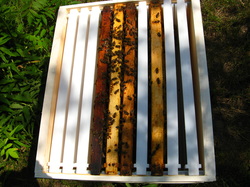
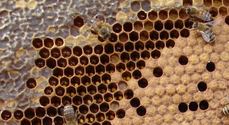
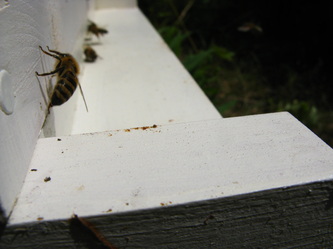
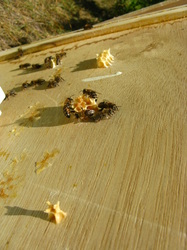
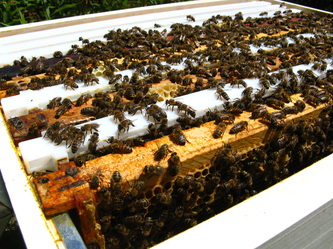
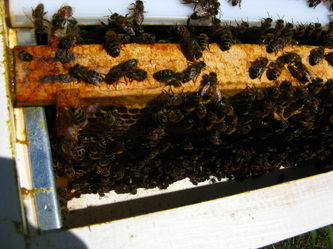
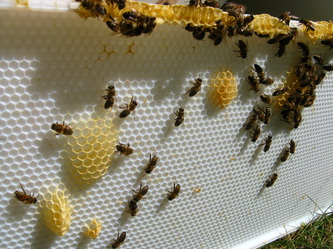
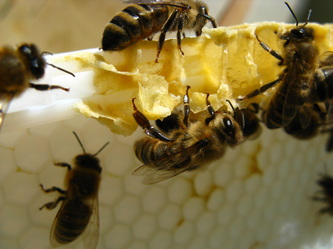
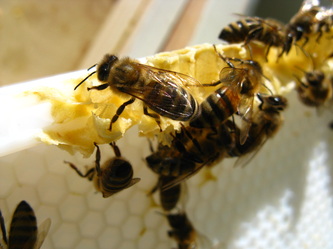
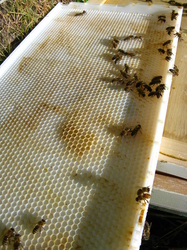
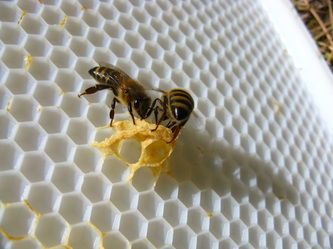
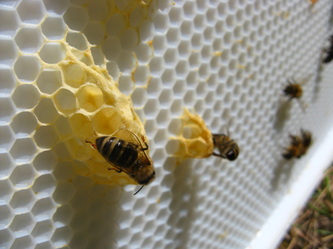
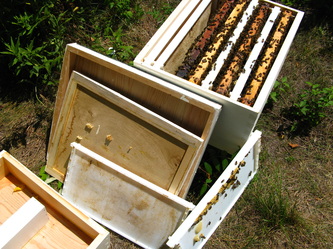

 RSS Feed
RSS Feed
